
Article by Paul Garvey courtesy of the Australian.
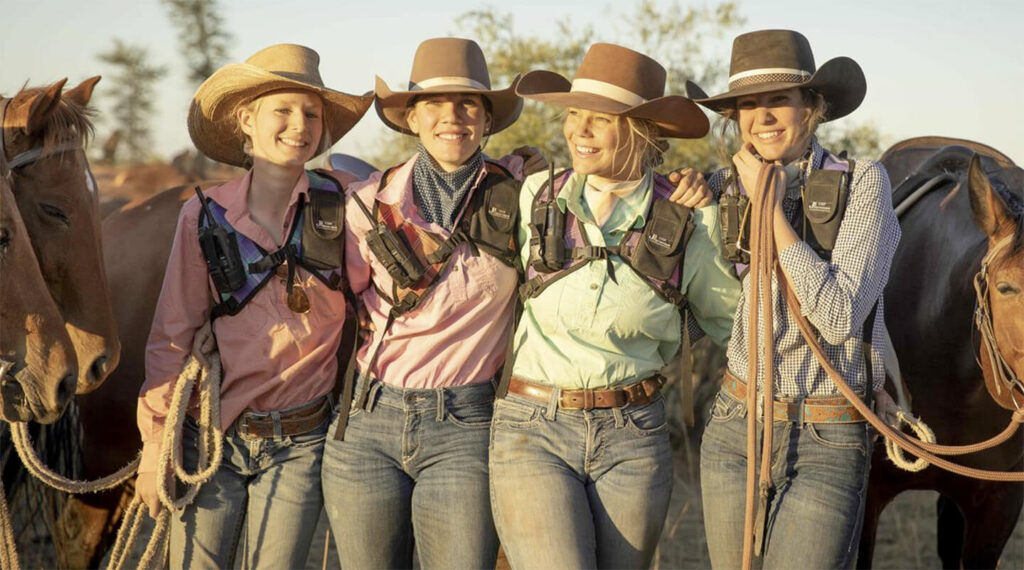
The red dirt and cattle country of the Kimberley has long been defined by its hard men and cowboys, yet it is women who are shaping the region’s future.
The four Ford daughters have spent their entire lives living on cattle stations across northern Australia, and the bulk of that time in the Kimberley.
And while holidaymakers flock to the Kimberley to enjoy the perfect weather of the winter months, Pippa Ford says her favourite time of the year is the wet season when the tourists clear out and the rain arrives. “It’s beautiful, incredible country. The gorges and waterfalls, it’s like nowhere else,” she says.
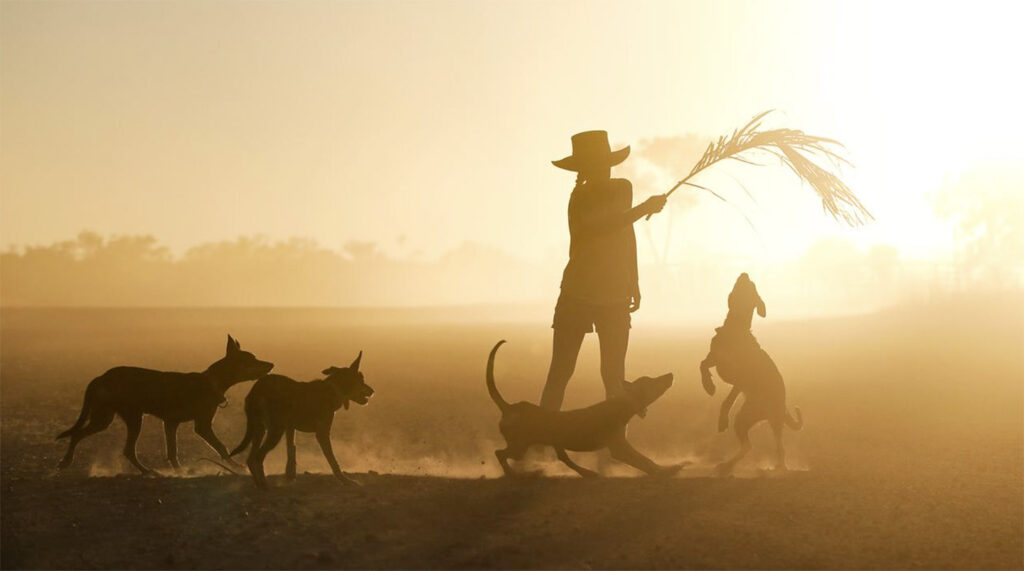
“Nothing beats Christmas at home. The wet season is phenomenal, the build-up when the rain is coming is just beautiful.”
For the past several years, the Fords have been living at Fossil Downs station, just east of Fitzroy Crossing, where their father, Rick Ford, is the station manager.
Fossil Downs, owned by Gina Rinehart’s Hancock Agriculture since 2015, is one of Western Australia’s most historic stations.
Its success – and the women who have made Fossil Downs such a powerhouse in the Kimberley – will be among the topics at WA’s first Bush Summit next Monday, hosted by The Australian and Hancock Prospecting.
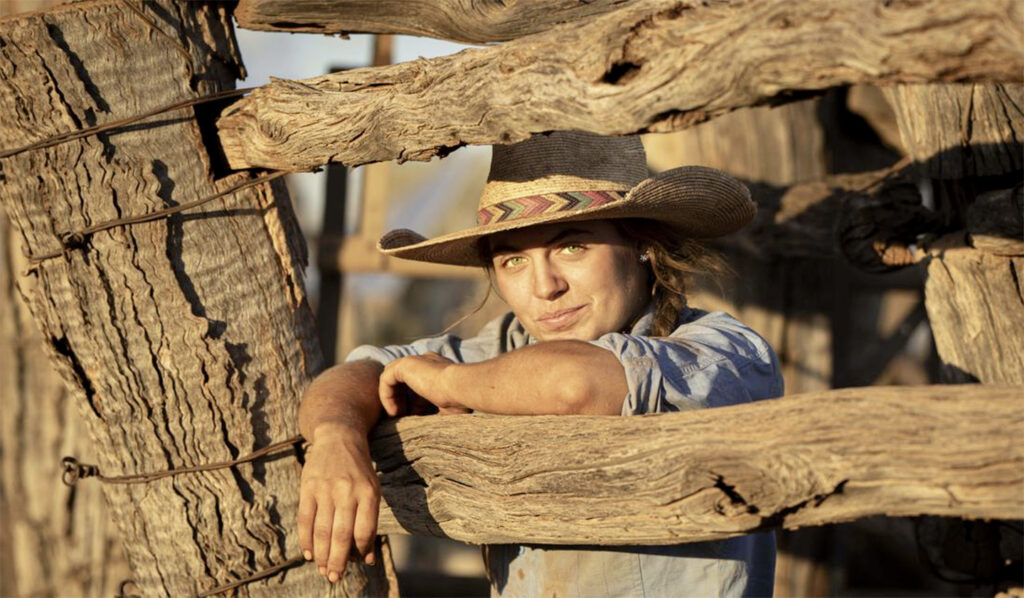
Its history dates back to 1879 when a party led by Alexander Forrest passed through the area and identified agricultural potential. Three brothers from Goulburn NSW – Dan, Charles and William MacDonald – trekked some 5600km across country to the area with the aim of establishing a station there, seeking a location specified by Forrest in one diary in which he had described a large open downs country sitting on the edge of three river systems.
Three years after setting out from Goulburn, the brothers completed their epic journey. It came at a hefty cost: their father, Donald, had died after being thrown from a horse, while the 700 cattle and 60 horses they set out with had shrunk to 327 head of cattle and just 13 horses.
Today, the station is in the middle of a sweeping overhaul under the ownership of Mrs Rinehart, from installation of humble but crucial shade cloths over water troughs and around the property to cutting-edge data and DNA technologies.
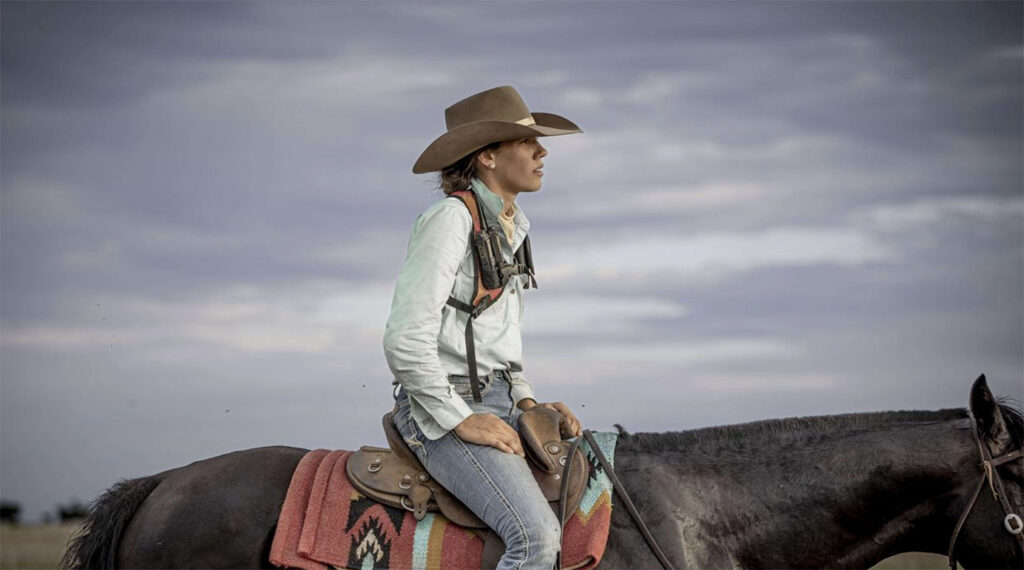
Perhaps the most significant investment is a number of young calves running around the station.
Those are the first generation of what Mr Ford has labelled the Kimberley Composite, a cross-breed specially designed at Fossil Downs for the region.
Those calves are designed to bring the best traits of four cattle breeds. Historically, the Kimberley’s cattle industry has been dominated by Brahman cattle, which cope well in the Kimberley climate and are popular in Indonesia but whose meat holds limited appeal to Australian consumers.
Mr Ford expects the Kimberley Composite to tolerate tropical climate, have a slick coat resistant to pests, be less likely to have horns and be of excellent eating quality.
He says Mrs Rinehart has been a key advocate for both the installation of shade and the breeding of cattle less likely to have horns due to her passion for animal welfare.
Technology is at the centre of everything at Fossil Downs.
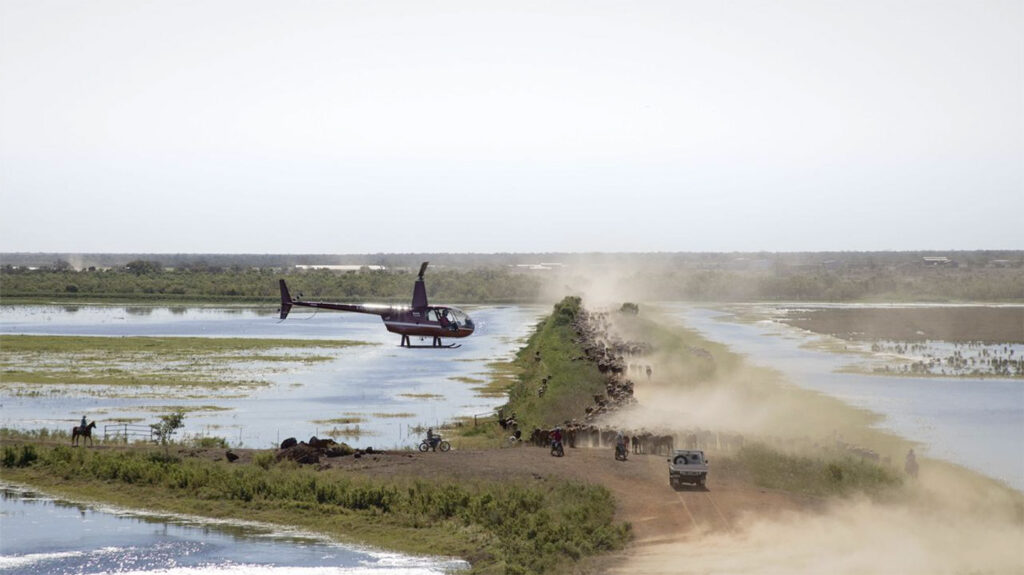
Satellite imagery helps keep track of feed levels across the station while each head of cattle is carefully tracked over its whole life, building a bank of data to help inform herd management. DNA testing helps identify susceptibility of cattle to diseases and gives useful information on breeding.
Fossil Downs now runs entirely off solar power and batteries. That investment was made to improve the station’s resilience: it was cut off for months after January’s flooding, so solar means it no longer has to rely on trucking in diesel.
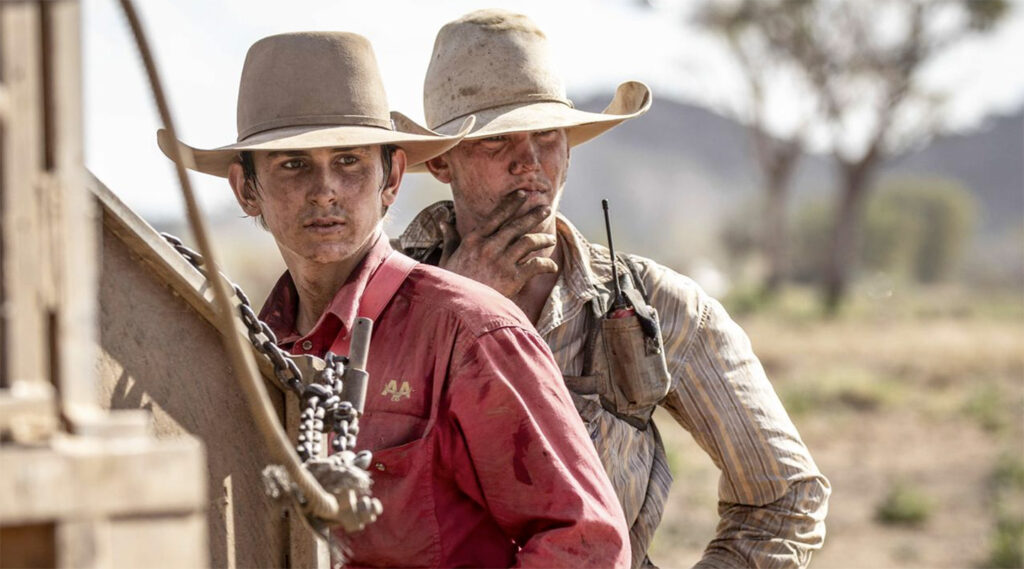
On the other side of the Kimberley, the Roebuck Plains station outside Broome is going through its own transformation. It s is now wholly owned and managed by Nyamba Buru Yawuru, the Aboriginal corporation that represents the traditional owners of the Broome region.
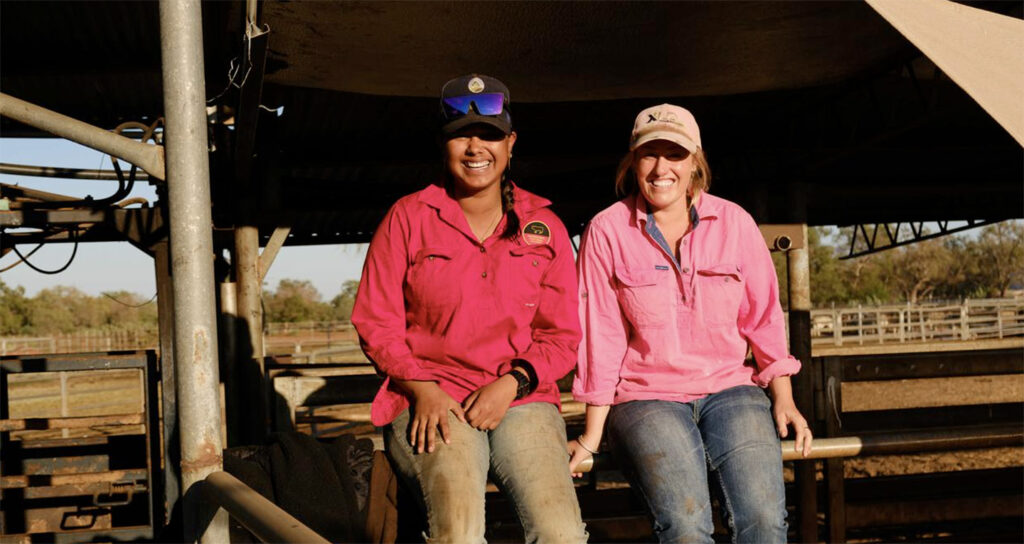
The station is looking into diversifying its cattle herd, and has begun studies into whether to diversify part of the station into irrigated agriculture.
They have also launched an Aboriginal Pastoral Academy, which has this year produced its first 11 graduates.
Pippa Ford, meanwhile, knows her future lies in agriculture, to which she has been drawn by her love of the animals and the quality of the people in the sector.
“(They) are just really down to earth,” she says.
“I’ll always have something to do with agriculture, it just gets in your blood.”















